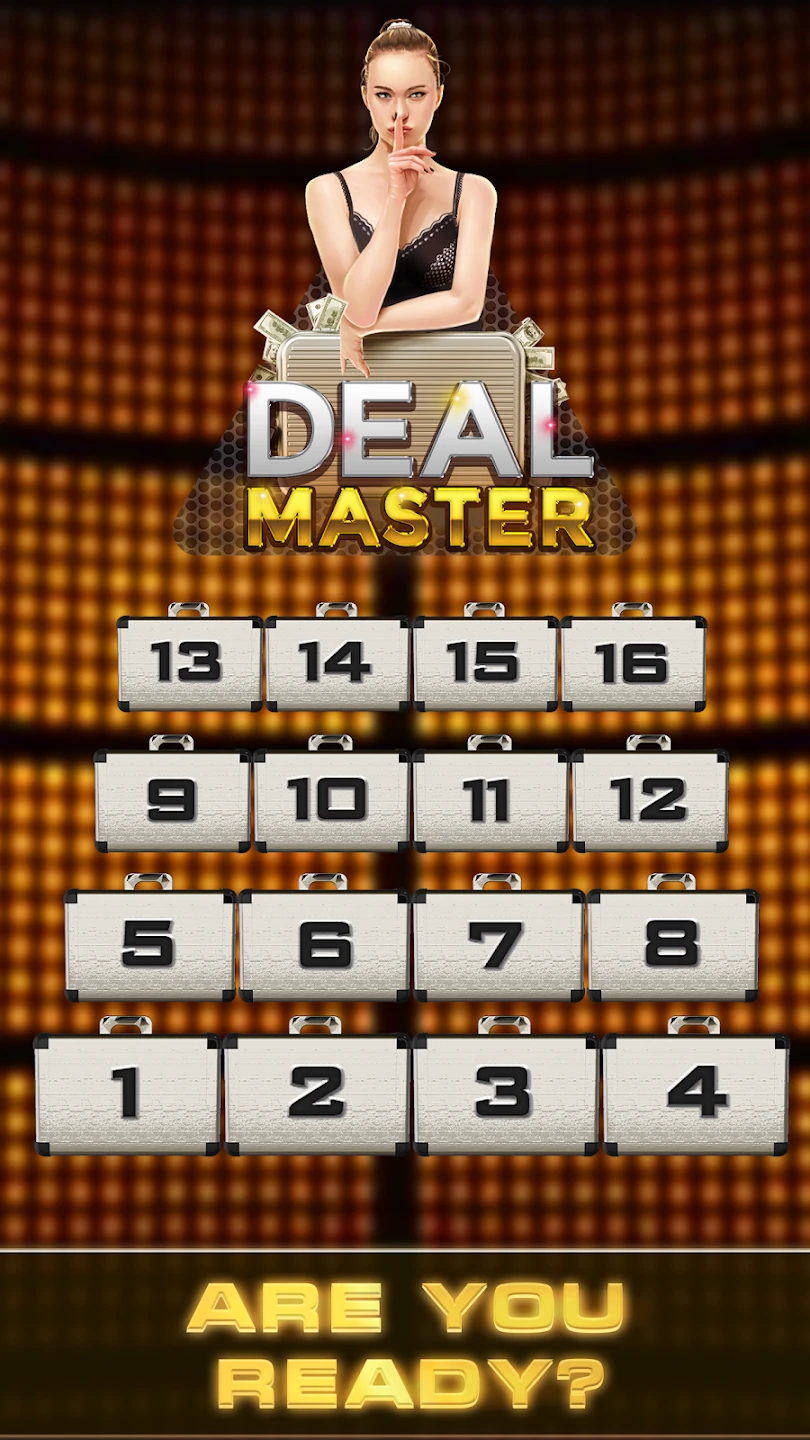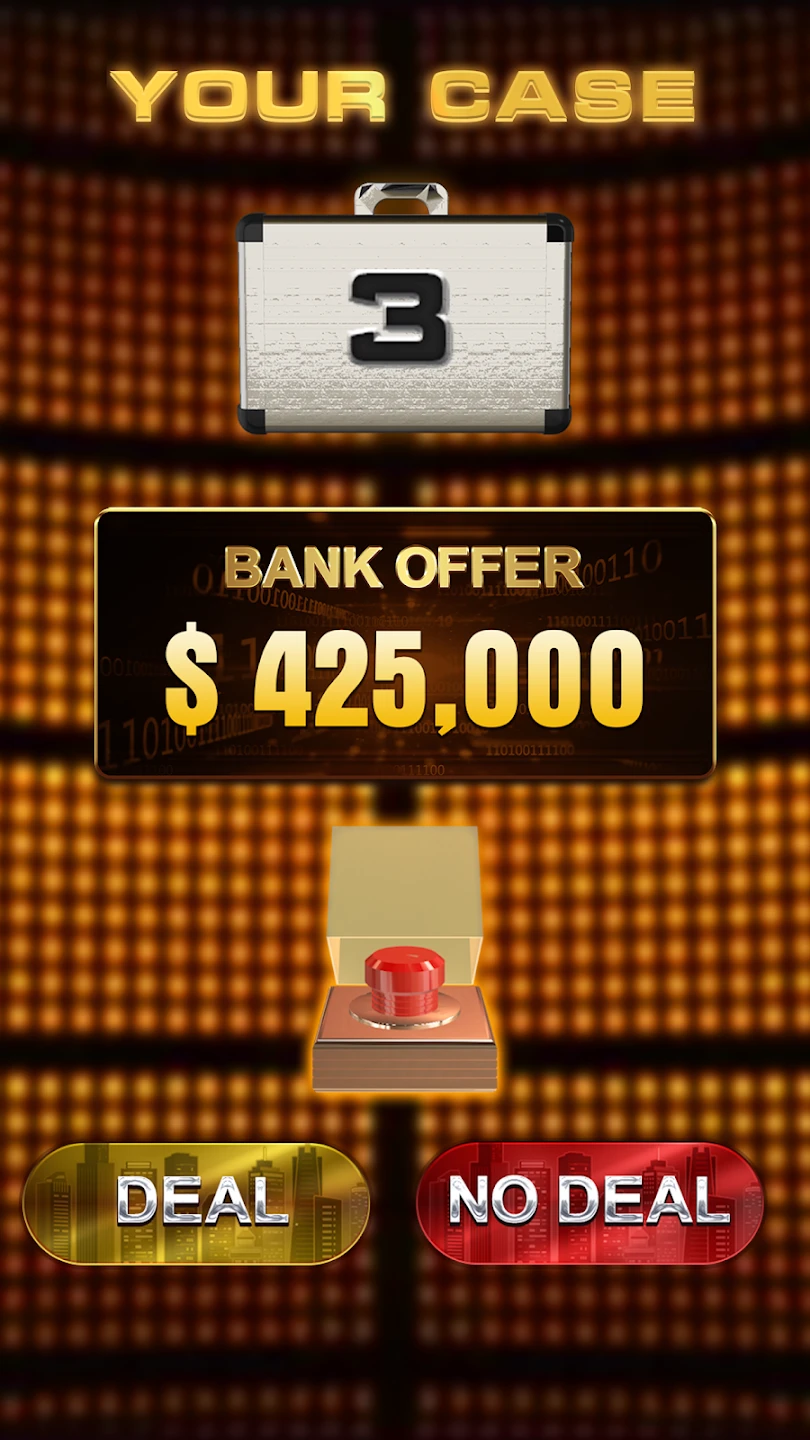 |
|
| Rating: 4.4 | Downloads: 1,000,000+ |
| Category: Trivia | Offer by: Cyperus Studio |
“Deal Master: Million Deal” is a high-stakes strategy board game designed for 3-6 players, blending negotiation, chance, and resource management. Belonging to the competitive board game genre, it challenges players to outmaneuver opponents in securing lucrative deals while managing risks and investments. What makes it particularly engaging is the intricate balance between calculated risks, bluffing elements, and the potential to amass a vast fortune, creating tense moments at every turn.
The gameplay of “Deal Master: Million Deal” is fast-paced and intellectually demanding, appealing to fans of strategic negotiation. Players are presented with a series of complex scenarios and offers that require careful evaluation, while the visual style features sleek, modern components with vibrant color coding to differentiate player boards and assets. The storyline, while secondary to the core mechanics, revolves around the ambitious goal of becoming the wealthiest investor, adding a narrative layer to the competitive interactions.
Gameplay and Features
- [Core Gameplay Loop]: Players take turns proposing and counter-proposing deals for valuable assets or contracts based on limited information. The objective is to strategically acquire high-value items, manage your budget and reputation, outbid rivals, and strategically use your limited resources (like investment capital or manpower) to build your portfolio and achieve a monopoly, ultimately aiming for the highest total net worth.
- [Visuals or Art Style]: The game utilizes high-quality, professionally produced cards for assets, offers, and player tokens, with clear typography and saturated color palettes for key zones like bidding spaces or deal indicators. The board layout, while minimalistic, clearly delineates the market, auction area, and player zones for easy tracking.
- [Modes or Levels]: Offers a standard competitive play mode for 3-6 players. Replayability is boosted by randomly selected starting conditions, different starting funds for players, and a variety of asset types (real estate, stocks, tech) that can be introduced through pre-game setup or modular components. This ensures almost infinite unique game sessions.
- [Controls or Interface]: Played entirely on the game board with physical cards and player tokens. Controls involve selecting cards, moving tokens, making offers (announced or written), and managing your turn actions. The interface is tactile and intuitive with clearly defined spaces for player interaction, making it easy to grasp even on the first attempt.
- [Customization or Power-ups]: Players start with unique character cards that define their initial traits (e.g., aggressive, risk-averse) influencing bonuses or penalties throughout the game. Customization comes mainly from player choice during setup regarding starting assets. The main motivator is the pursuit of the spectacular wealth display at the end, combined with outsmarting opponents.
- [Any Special Systems]: The game includes a “Deal Negotiation” system using a bidding cube and offer cards which adds tension and forces players to constantly reassess risks. There’s also an optional “Reputation” track that can impact future offers from the central “Deal Bank,” adding a layer of social deduction.
How to Play
Beginner’s Guide:
- Step 1: Each player selects a character card (defining initial traits) and places their player board and initial funds. Shuffle the asset deck and place it centrally, and deal the initial offer cards face down.
- Step 2: The first player starts by reading an initial offer card aloud or revealing it to the group. Players then decide whether to accept, reject, or counter-offer, using their tokens and funds to signal actions or discuss in a negotiation phase (if rules allow). Gameplay proceeds clockwise.
- Step 3: When a deal is accepted or rejected, the asset is recorded on the board or tracked individually, funds are adjusted, and a new offer is drawn. The game continues over several rounds, with players expanding their holdings and managing their finances until all assets or a set number of rounds are exhausted, then calculating final wealth.
Pro Tips:
- Read between the lines: The offer cards often contain subtle clues about their value (e.g., overly generous deals might be traps). Analyze the asset type and its potential future value.
- Build alliances carefully: Sometimes pooling resources for a larger bid can be strategic, but trust is often broken in the final deal stages, so use caution.
- Manage your funds wisely: Don’t overspend early; save capital for crucial assets or high-value later offers that could double your wealth.
Similar Games
| Game Title | Why It’s Similar |
|---|---|
| Monopoly (Classic or Live-Action) |
Shares a similar simplified economic strategy genre. Known for property acquisition and negotiation, although “Deal Master: Million Deal” focuses more on diverse assets and direct deal-making rather than property ownership. |
| Downfall: The Card Game |
Offers a similar high-pressure negotiation experience and theme of surviving corporate takeovers. Players deal with financial offers and competing goals in a competitive setting. |
| Leadership: The Game |
Appeals to strategic players with its focus on negotiation and deal-making. It features a deck-building mechanic and resource management similar to “Deal Master: Million Deal”, aiming for a large wealth score over multiple rounds. |
Frequently Asked Questions
Q: How long does a typical “Deal Master: Million Deal” game session last?
A: A game typically lasts anywhere from one to three hours, depending on the number of players and how thoroughly they engage in negotiations. With more players, it can take longer as each round requires discussion.
Q: Can I play “Deal Master: Million Deal” with just a friend or is it better with more players?
A: Definitely play with more players! While a head-to-head match is possible, the core appeal lies in the multiplayer negotiation and competition. With 3-6 players, the tension increases significantly, making every bid and counterbid much more strategic and intense.
Q: Does the game include any luck elements, or is it purely about skill?
A: Yes, there is an element of luck, primarily through the random deal cards drawn each round and the specific assets dealt out. However, the game heavily favors skill in negotiation, bluffing, and strategic decision-making. Good luck can help you get great starting positions, but winning consistently relies on clever play.
Q: What are the minimum system requirements? (Assuming this refers to a potential video game adaptation)
A: If adapted for digital platforms, basic requirements would likely be a moderately powered device, such as a modern PC or console, with an internet connection for online play. The core experience would translate well to digital negotiation tables.
Screenshots
 |
 |
 |
 |
